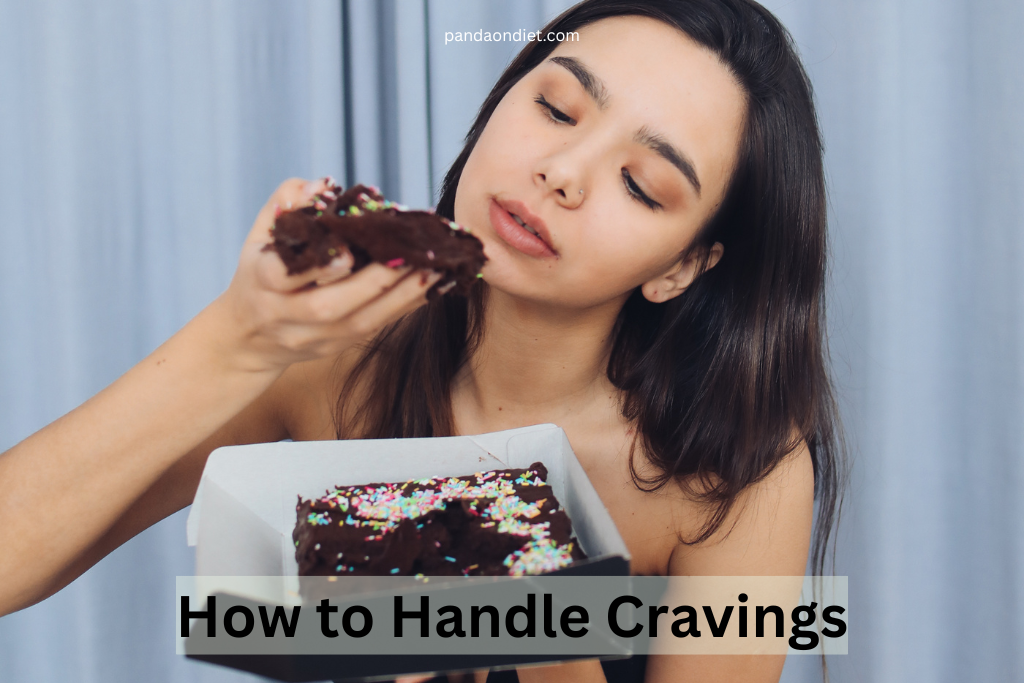Food cravings can be one of the biggest challenges when you’re trying to stick to a diet. Whether it’s a sudden urge for something sweet or a persistent desire for salty snacks, cravings can easily derail your progress if not managed properly.
But don’t worry—there are effective strategies to handle cravings without giving in. This article will provide you with practical tips to help you stay on track and maintain your diet goals.
Understanding Cravings
Before diving into the tips, it’s important to understand what cravings are. Cravings are intense desires for specific foods, often unhealthy ones like sugary or high-fat snacks. These urges can be triggered by various factors, including emotional stress, boredom, or even dehydration. Recognizing the root cause of your cravings can be the first step in managing them effectively.
Tips to Stay on Track Without Giving In
Tip 1: Stay Hydrated
One of the simplest yet most effective ways to manage cravings is to stay hydrated. Sometimes, our bodies can mistake thirst for hunger, leading to unnecessary snacking.
Drinking a glass of water when you feel a craving coming on can help you determine if you’re truly hungry or just thirsty. If the craving persists after drinking water, then it’s more likely a genuine desire for food.
Tip 2: Eat Regular, Balanced Meals
Skipping meals or going too long without eating can lead to intense cravings. When your blood sugar drops, your body will naturally crave quick sources of energy, like sugary or fatty foods.
To avoid this, make sure you’re eating regular, balanced meals that include a mix of proteins, healthy fats, and carbohydrates. This will help keep your blood sugar stable and reduce the likelihood of sudden cravings.
Tip 3: Incorporate Fiber into Your Diet
Fiber plays a crucial role in managing cravings and supporting weight loss. Foods rich in fiber, like fruits, vegetables, whole grains, and legumes, help you feel full for longer periods. This fullness reduces the urge to snack between meals.
There are two types of fiber: soluble and insoluble. Soluble fiber dissolves in water and forms a gel-like substance in the stomach, slowing down digestion and keeping you full. Insoluble fiber adds bulk to your stool and aids in digestion. Including both types of fiber in your diet can help manage cravings effectively.
Tip 4: Practice Mindful Eating
Mindful eating involves paying full attention to the experience of eating and enjoying your food. This practice can help you become more aware of your body’s hunger and fullness cues, making it easier to avoid overeating.
When a craving hits, take a moment to pause and ask yourself if you’re truly hungry or if there’s another reason for your craving. If you do decide to eat, do so slowly and savor each bite.
This can help you feel more satisfied with smaller portions and reduce the urge to indulge in unhealthy snacks.
Tip 5: Keep Healthy Snacks on Hand
Having healthy snacks readily available can help you manage cravings without giving in to unhealthy options. Stock up on snacks like nuts, seeds, yogurt, or fresh fruit, which can provide the nutrients your body needs without derailing your diet.
These snacks are not only healthier but also more satisfying, helping you resist the temptation of junk food.
Tip 6: Distract Yourself
Cravings often arise when you’re bored, stressed, or seeking comfort. Instead of reaching for food, try to distract yourself with other activities. Go for a walk, call a friend, read a book, or engage in a hobby you enjoy.
These distractions can help take your mind off the craving and reduce the likelihood of giving in.
Tip 7: Plan for Treats
Completely depriving yourself of your favorite foods can lead to stronger cravings and even binge eating. Instead of cutting out all treats, plan for them. Allow yourself to enjoy a small portion of your favorite snack once in a while, but do so mindfully and without guilt.
By planning for treats, you can satisfy your cravings in a controlled manner without feeling like you’ve failed your diet.
Tip 8: Get Enough Sleep
Lack of sleep can increase cravings, particularly for high-calorie, sugary foods. When you’re tired, your body produces more ghrelin, the hormone that stimulates hunger, and less leptin, the hormone that signals fullness.
To keep cravings in check, aim for 7-9 hours of quality sleep each night. A well-rested body is better equipped to handle cravings and make healthier food choices.
Tip 9: Understand Emotional Eating
Cravings are often linked to emotions like stress, sadness, or even happiness. It’s important to recognize when you’re eating for emotional reasons rather than physical hunger.
When you feel an emotional craving, take a moment to reflect on your feelings and find alternative ways to cope, such as journaling, meditating, or talking to a friend. Addressing the emotional root of your cravings can help you manage them more effectively.
FAQs
Why do I experience cravings when I’m dieting?
Cravings during dieting can occur due to several factors, including emotional stress, nutritional deficiencies, or simply because you’re restricting foods that you enjoy. Understanding the root cause of your cravings can help you manage them more effectively.
How can drinking water help with food cravings?
Sometimes our bodies confuse thirst with hunger, leading to cravings. Drinking a glass of water when you feel a craving coming on can help you determine if you’re truly hungry or just dehydrated. Staying hydrated can reduce unnecessary snacking.
What types of snacks are best for managing cravings?
Healthy snacks like nuts, seeds, yogurt, fresh fruits, and vegetables are great options for managing cravings. These snacks provide essential nutrients and help keep you full, making it easier to resist unhealthy options.
Is it okay to occasionally give in to cravings while dieting?
Yes, it’s okay to occasionally indulge in your cravings as long as it’s done in moderation. Planning for small treats can help you satisfy your cravings without feeling guilty or derailing your diet.
How does sleep affect my cravings?
Lack of sleep can increase cravings, particularly for sugary and high-calorie foods. When you’re well-rested, your body is better able to regulate hunger hormones, making it easier to manage cravings and make healthier food choices.
Final Words
Managing food cravings is a key part of sticking to a healthy diet. By staying hydrated, eating balanced meals, incorporating fiber, and practicing mindful eating, you can reduce the frequency and intensity of cravings. Remember, it’s okay to treat yourself occasionally, but the key is moderation and mindfulness. With these tips, you’ll be better equipped to handle cravings and stay on track with your diet goals.


